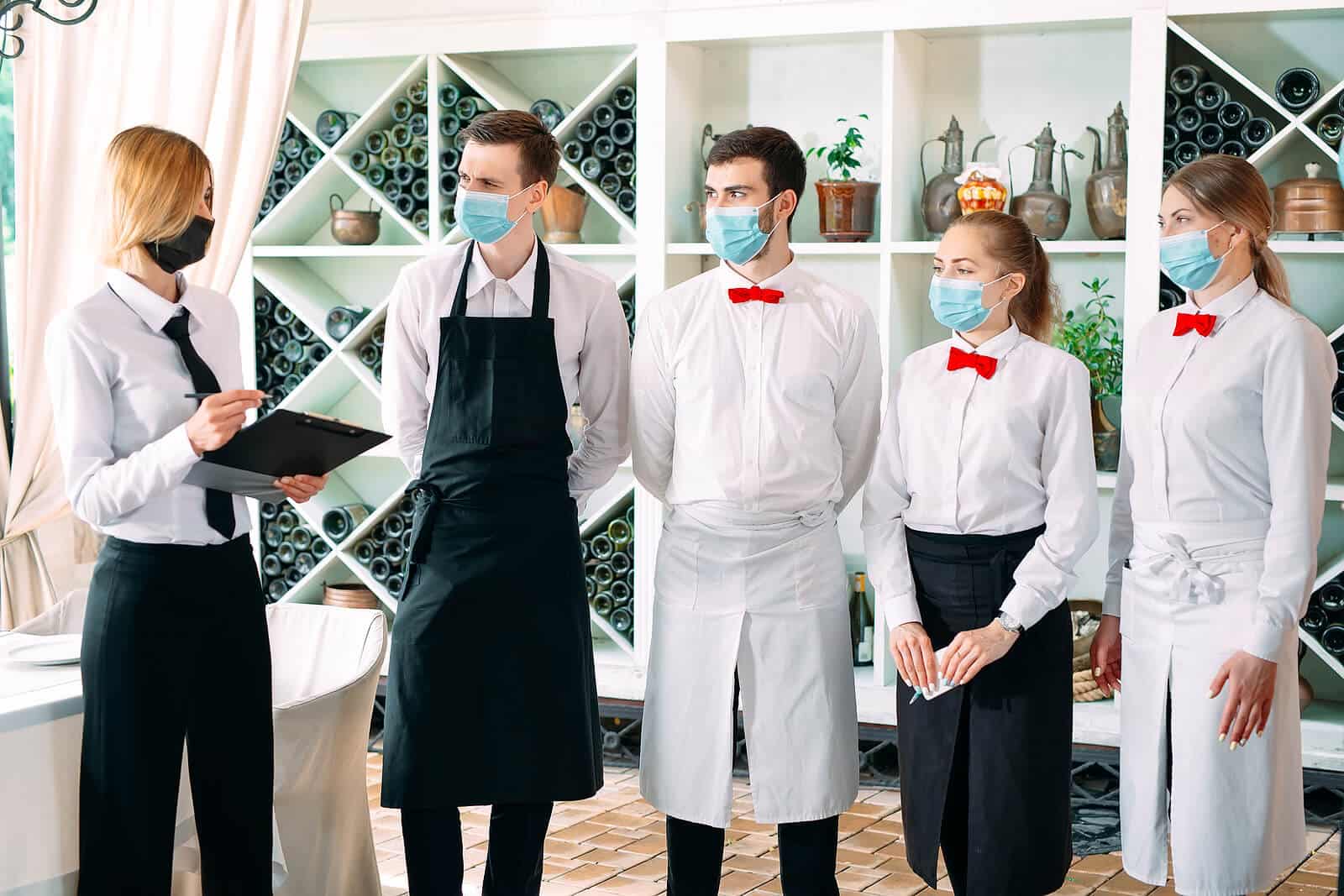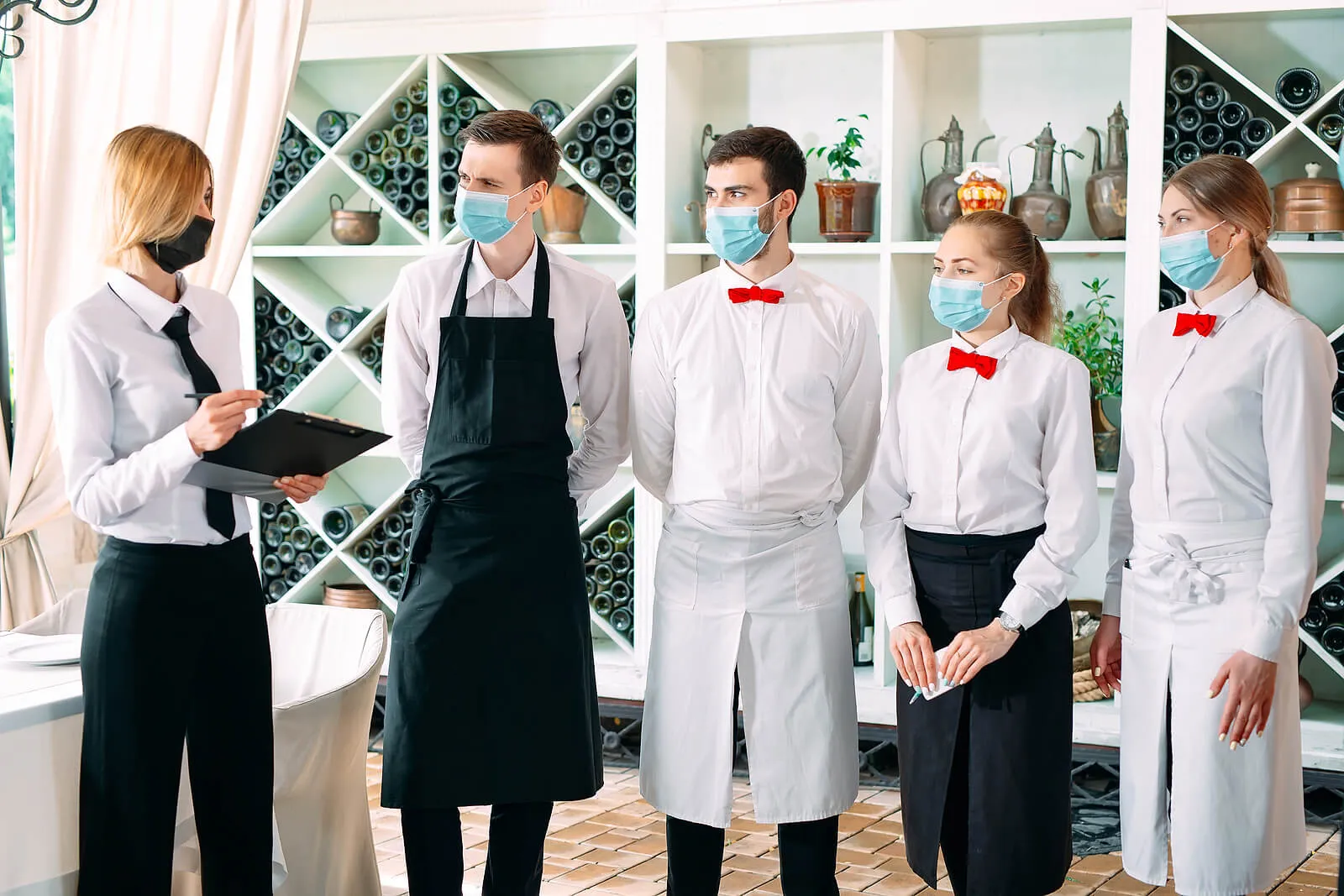What to know about SevSafe and Covid19
November-18-2020

When we dine out in restaurants, bars, and pubs, we trust that hospitality workers are safely handling our food and beverages. That trust stems from certification requirements. In virtually every professional kitchen in the United States, workers must prove their knowledge of key food and beverage safety rules before they can roll up their sleeves and serve customers. The ServSafe exam is one opportunity for workers to demonstrate their mastery of these industry best practices
What is ServSafe?
ServSafe has been the largest restaurant industry association since it began in 1919. Together with the National Restaurant Association Education Foundation, ServSafe offers several certification exams for chefs, restaurant managers, and bartenders to demonstrate their skills and mastery of food and beverage safety concepts.
Their reputation for quality extends to anyone who holds a ServSafe certification. The group seeks to advance and empower hospitality workers across the country. Indeed, the ServSafe test has become synonymous with quality and food safety itself.
ServSafe and Covid-19t
Food safety is always important, but in a post- Covid-19 world, we're all paying more attention to how our food is prepared and served. To reflect our ever-changing world,ServSafe is offering free Covid-19 food safety training opportunities. The Covid-19 trainings cover topics such as:
- Conflict De-escalation
- Reopening Guidance
- Delivery
- Takeout
While there are no certification exams associated with these new trainings, participants will receive a personalized Record of Training to share with their managers and colleagues. If you're eager to prove to your supervisors that you're taking Covid-19 seriously, these training modules are a great way to do so.
Why Get ServSafe Certified?
Certification sends a clear message to employers that you're both familiar with key food safety best practices and committed enough to seek professional training. ServSafe certification is one of the best additions you can make to your resumé. Employers are always eager to hire knowledgeable, trustworthy employees, and the ServSafe exam makes it easy to vet potential candidates quickly. Understanding food safety is crucial, now more than ever.
From a practical perspective, ServSafe certification is an excellent way to bolster your food safety skills in the kitchen. You'll have a far less stressful working experience if you know how to properly store leftover chicken or whether you have cooked a cut of steak long enough to serve to a customer. Certification exams offer food service workers the chance to educate themselves on food safety and test their skills at the same time.
ServSafe Certification Options
ServSafe offers four main certifications. The ServSafe Food Handler test, the most popular option, grants certification to anyone interested in food safety. Expect questions on foodborne microorganisms, allergens, personal hygiene, and the preparation, serving, and storing of food. Restaurants frequently require their servers, line cooks, and bussers to take this ServSafe exam before they begin working in the kitchen or dining room. Answer at least 75 percent of the ServSafe questions correctly, and you'll earn the certification.
The ServSafe Manager exam features many of the same principles and standards as the Food Handler exam, but applied to the management decision-making process. In addition to questions on topics like allergens and expiration dates, the exam also features questions on the purchasing, receiving, and storing of ingredients, as well as the proper way to clean and sanitize facilities. Like the Food Handler test, you'll need to earn a score of 75 percent or higher to earn this ServSafe certification.
The ServSafe Alcohol exam was designed to measure the knowledge and skills of bartenders and servers. It covers the proper forms of identification required to purchase alcohol, how to determine if someone is intoxicated, when and how to refuse service, and when a server is liable for civil or criminal action. A score of 75 percent or higher is required for certification.
The ServSafe Allergens exam was created to ensure that food handlers are mindful of the risks associated with serving certain foods and beverages. The test covers topics such as recognizing food allergens, identifying symptoms, the dangers of cross-contamination, and proper cleaning methods. Earn a score of 75 percent or more, and you'll have your ServSafe certification in no time.
While ServSafe doesn't offer any formal Covid-19 certifications, their free training programs can be just as useful. Listing your participation in a Covid-19 food safety training on your resumé will make you stand out to employers, even if there isn't a specific ServSafe test to coincide with the coursework.
How to Prepare for ServSafe Tests
A ServSafe practice test can do wonders to prepare you for the real thing. Take a practice exam as you first begin studying. The results can help you understand how you'd perform if the test were happening today. You'll receive a detailed score report with information on why a question was marked wrong. Use that information to create a customized study guide. Take a second ServSafe practice exam to see how much you've learned since the first one. It's an incredibly effective – and satisfying – way to measure your progress. No matter your career goals, Exam Edge® offers ServSafe practice tests that are certain to help you achieve them. We offer ServSafe Food Handler practice exams and ServSafe Manager practice exams. We also have ServSafe California Food Handler practice tests and ServeSafe California Food Safety Manager practice tests if you are working at restaurants in the state of California. Get started with a free sample practice exam now!
Blogs related to: What to know about SevSafe and Covid19

